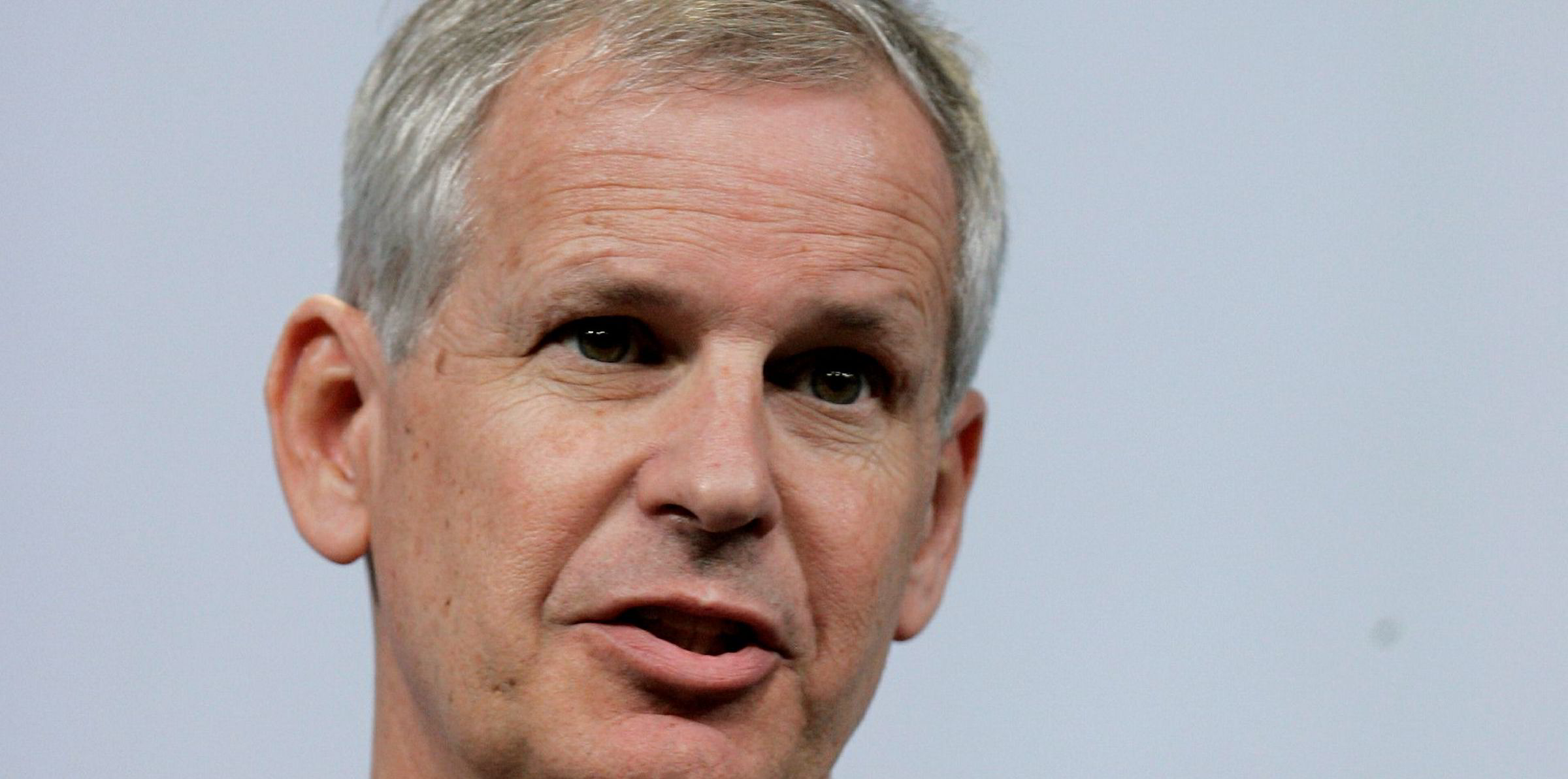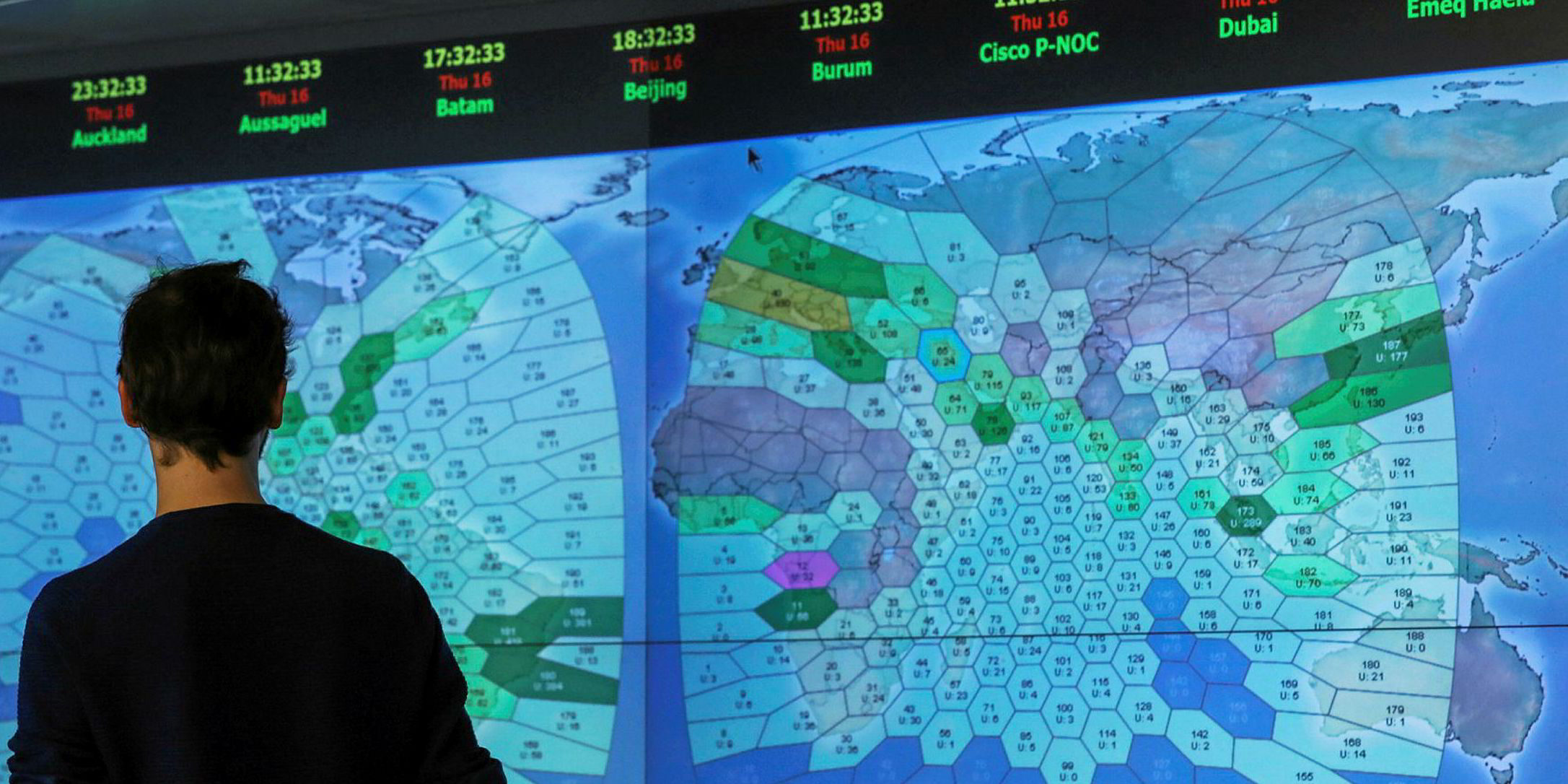Within the next week, US satellite company EchoStar will have to decide whether to get serious about its takeover offer for international maritime communications group Inmarsat. If it goes ahead, regulatory and UK government officials will quickly need to determine their response.
EchoStar made an initial approach to Inmarsat in early June that Inmarsat rejected as “highly preliminary”, saying it “significantly undervalued” the London-based company. That set in motion a UK regulatory process that means the US company must either make a firm offer, or announce that it is backing off, within 28 days. That deadline falls next Friday, 6 July.
Inmarsat has strategic and military value for the UK government, holding communications contracts with the British Army. It also comes under the umbrella of an inter-governmental agency, the International Mobile Satellite Organization (IMSO) since being privatised in 1999.
EchoStar’s first approach was made as Inmarsat’s stock languished at £4.63 ($6.15) per share, down from a high of £11.37 in late 2015. After news became public, the shares shot up to around £5.40 and now £5.70.
But analysts believe the prospects for commercial, particularly aviation, communication services could mean they are worth up to double that, having been depressed by poor maritime markets.

By chance, the EchoStar interest is happening just as Inmarsat’s 30-year monopoly over the global maritime distress safety system (GMDSS) is likely to be opened up to rival Nasdaq-listed Iridium, and possibly China’s BeiDou.
IMSO, which acts as a watchdog for the IMO, holds a three-year notice period over amendments to GMDSS requirements that would apply in the case of a takeover. It also owns a "golden share" that a previous director general, Captain Esteban Pacha-Vicente, said in 2013 gives it the “possibility to block any decision which may adversely affect provision of public-services obligations”.
It is hard to see why EchoStar would be regarded as any worse an owner than the private-equity companies that purchased Inmarsat in 2003
But in the long term, it is hard to see why EchoStar would be regarded as any worse an owner than the private-equity companies, Apax Partners and Permira, that purchased Inmarsat for $1.5bn in 2003 before listing it in 2005. Any buyer would simply be required to take on the public-service obligations set out in an IMSO convention.
There do not seem to be any material impediments to EchoStar and its billionaire owner Charlie Ergen buying Inmarsat. It appears to have the cash ($2.2bn) and marketable securities ($1.1bn) to mount a push for Inmarsat, whose current market value is about £2.8bn.
The British government could object over security and regulatory issues relating to Inmarsat's creation, backed by the UK as a member state of the IMO and IMSO.
In its 2017 election manifesto, the ruling Conservative Party pledged to protect “critical national infrastructure” from takeovers, but has done little since to block any — although the Brexit-related debate over the European Union's Galileo satellite navigation system could complicate the politics of an Inmarsat takeover.
But EchoStar already has contracts with the US military and it has UK satellite operations that could be used as an acquisition vehicle.
Analysts believe the EchoStar move is related to its attempts to control mid-band mobile communications capacity in the US, and that Inmarsat’s value in this area is related to the spectrum it licenses to US company Ligado — which itself could attract a buyout from another satellite rival, Verizon.
In this scenario, Ligado could become a serious competitor to Dish, a sister firm to EchoStar controlled by Ergen that has spent $20bn building its mid-band mobile communications strength in the US.
Consolidation in the crowded satellite sphere is increasingly likely, as newcomers emerge in the form of SoftBank-backed OneWeb and Elon Musk’s SpaceX, and that could appeal to Inmarsat investors who are thinking it may be time to sell out.
EchoStar this week revealed it has already taken a near-3% shareholding in Inmarsat as well as a 10.4% stake in its convertible bonds. Insiders say it has been stalking Inmarsat for at least two years.
Bizarrely this week, French satellite group Eutelsat said first it was considering making an offer for Inmarsat and then ruled it out. Analysts say Eutelsat’s bid would have been hampered as it has no UK base and so would be seen as a purely foreign takeover, but they add that Inmarsat, which may lack the funds it needs for expensive expansion in the mobile sector but is currently a cheap buy, is clearly now ‘in play’.
The time is looming for big decisions that will affect maritime communications.





